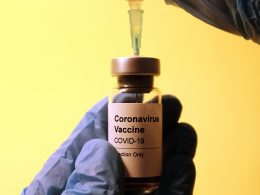In recent years, the concept of personalized nutrition has gained significant traction within the health and wellness community. This approach, which tailors dietary recommendations to an individual’s unique genetic makeup, lifestyle, and health status, offers a promising avenue for improving health outcomes. By focusing on personalized nutrition, we can move away from the one-size-fits-all dietary guidelines that often fail to address the specific needs of individuals. This article delves into the impact of personalized nutrition on health outcomes, exploring its potential benefits, challenges, and future directions.
Understanding Personalized Nutrition
Personalized nutrition is a tailored approach to diet and nutrition that considers an individual’s genetic background, microbiome composition, metabolic profile, and lifestyle factors. Unlike traditional dietary guidelines, which provide broad recommendations for the general population, it aims to optimize health by addressing the unique needs of each person.
Key Components of Personalized Nutrition
- Genetic Information: Advances in genomics have made it possible to analyze an individual’s DNA to identify genetic predispositions to certain health conditions and nutrient metabolism. For instance, some people may have a genetic variation that affects how they metabolize caffeine or process certain vitamins.
- Microbiome Analysis: The gut microbiome, composed of trillions of microorganisms, plays a crucial role in digestion, immunity, and overall health. Its plans often include microbiome analysis to understand how an individual’s gut bacteria influence their health and dietary needs.
- Metabolic Profiling: Metabolic profiling involves assessing an individual’s metabolic rate and nutrient utilization. This can help identify specific dietary needs and potential deficiencies.
- Lifestyle Factors: It also takes into account lifestyle factors such as physical activity, stress levels, sleep patterns, and environmental exposures. These factors can significantly influence an individual’s nutritional requirements.

Benefits of Personalized Nutrition on Health Outcomes
Improved Nutrient Absorption and Utilization
Personalized nutrition can enhance nutrient absorption and utilization by aligning dietary recommendations with an individual’s genetic and metabolic profile. For example, some people may have genetic variations that affect their ability to absorb certain vitamins and minerals. By identifying these variations, It can help individuals choose foods and supplements that optimize their nutrient intake.
Better Management of Chronic Conditions
Chronic conditions such as diabetes, cardiovascular disease, and obesity are often influenced by diet and lifestyle. It can provide targeted dietary interventions that address the specific needs of individuals with these conditions. For instance, a person with type 2 diabetes may benefit from a personalized diet that focuses on managing blood sugar levels through specific carbohydrate intake and meal timing.
Enhanced Weight Management
Weight management is a complex process influenced by genetics, metabolism, and lifestyle. It can offer tailored strategies for weight loss or maintenance by considering an individual’s unique metabolic rate and genetic predispositions. This approach can be more effective than generic weight loss programs, which may not address the underlying factors contributing to weight gain.
Prevention of Nutrient Deficiencies
Personalized nutrition can help prevent nutrient deficiencies by identifying specific dietary needs and potential gaps in an individual’s diet. For example, someone with a genetic variation that affects vitamin D metabolism may require higher intake of this nutrient. By addressing these needs, it can support overall health and well-being.
Enhanced Athletic Performance
Athletes and physically active individuals can benefit from personalized nutrition by optimizing their diet for performance and recovery. Personalized recommendations can help athletes choose the right balance of macronutrients, micronutrients, and hydration strategies to support their training and competition goals.

Challenges and Considerations
While personalized nutrition offers numerous potential benefits, it also comes with challenges and considerations that need to be addressed.
Accessibility and Cost
One of the primary challenges of its accessibility. Genetic testing, microbiome analysis, and metabolic profiling can be expensive and may not be covered by insurance. This can limit access to personalized nutrition services for many individuals.
Data Privacy and Security
The collection and storage of genetic and health data raise concerns about privacy and security. It is essential to ensure that individuals’ data are protected and used ethically. Clear regulations and guidelines are needed to address these concerns.
Scientific Validation
While the field of personalized nutrition is rapidly evolving, more research is needed to validate the effectiveness of personalized dietary recommendations. Large-scale, long-term studies are necessary to understand the impact of personalized nutrition on health outcomes fully.
Behavior Change and Adherence
Personalized nutrition recommendations are only effective if individuals are willing and able to follow them. Behavior change and adherence to dietary recommendations can be challenging, and personalized nutrition plans should include support and education to help individuals make sustainable changes.
Future Directions
The future of personalized nutrition is promising, with ongoing advancements in technology and research. Here are some potential future directions for the field:
Integration with Digital Health Tools
Digital health tools, such as mobile apps and wearable devices, can enhance personalized nutrition by providing real-time data and feedback. These tools can help individuals track their dietary intake, physical activity, and other health metrics, making it easier to follow personalized recommendations.
Expansion of Microbiome Research
As our understanding of the gut microbiome continues to grow, personalized nutrition plans can become more precise and effective. Future research may uncover new ways to manipulate the microbiome through diet to improve health outcomes.
Personalized Nutrition for Public Health
While personalized nutrition focuses on individual needs, it can also have implications for public health. By identifying common genetic and metabolic variations within populations, public health initiatives can develop targeted dietary recommendations to address specific health concerns.
Collaboration with Healthcare Providers
Integrating personalized nutrition into mainstream healthcare can enhance its effectiveness and accessibility. Healthcare providers can play a crucial role in delivering its services and supporting individuals in making dietary changes.
Conclusion
Personalized nutrition represents a paradigm shift in how we approach diet and health. By considering an individual’s unique genetic, metabolic, and lifestyle factors, it has the potential to improve health outcomes significantly. While challenges such as accessibility, data privacy, and scientific validation remain, ongoing advancements in research and technology offer a promising future for personalized nutrition. As we continue to explore this innovative approach, it may become a cornerstone of preventive and therapeutic healthcare, helping individuals achieve optimal health and well-being.











